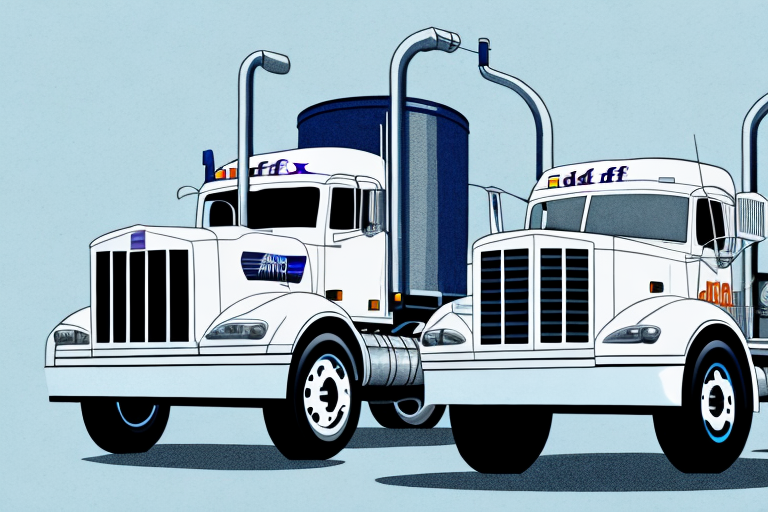Understanding LTL Fuel Surcharges
The world of shipping is complex and dynamic, influenced by various industries and factors that affect the cost of moving goods from one location to another. One significant factor that has garnered increasing attention in recent years is the LTL fuel surcharge. This article delves into the intricacies of LTL fuel surcharges, explaining what they are, how they work, and their impact on your shipping operations.
What Are LTL Fuel Surcharges?
LTL (Less-Than-Truckload) fuel surcharges are additional fees added to the base cost of LTL shipping services to account for fluctuations in fuel prices. These surcharges are typically structured as a percentage of the base shipping cost and can vary based on factors such as shipping distance, cargo weight, and the carrier being used.
Fuel surcharges are not exclusive to the shipping industry. Industries like airlines and freight trains also implement fuel surcharges to manage changes in fuel prices. However, for small businesses and individuals relying on LTL shipping services, these surcharges can significantly increase overall shipping costs.
Without fuel surcharges, carriers would need to absorb the fluctuating costs of fuel, potentially leading to financial instability or bankruptcy. By implementing these surcharges, carriers maintain stable profit margins while continuing to offer reliable shipping services.
The Impact of Fuel Surcharges on Shipping Costs
How Do Fuel Surcharges Affect Shipping Costs?
Fuel surcharges add an extra layer of complexity and unpredictability to shipping costs. Since fuel prices can fluctuate rapidly, surcharges can change frequently, making it challenging for shippers to accurately estimate final costs. For larger shipments, these surcharges can accumulate quickly, significantly increasing the overall cost of LTL shipping services.
Additionally, fuel surcharge rates can vary between carriers, complicating price comparisons for shippers. Some carriers may implement higher surcharges, making their services more expensive. Therefore, it's essential for shippers to research and compare fuel surcharge rates across different carriers to ensure they're getting the best deal.
The Impact of Fuel Prices on LTL Shipping Costs
Fuel prices influence shipping costs beyond just the surcharges. Carriers might raise their base rates in response to rising fuel costs or reduce the number of routes to conserve fuel and cut expenses. Moreover, as fuel costs are passed on to customers through surcharges, shippers may need to adjust their pricing strategies or logistics to remain competitive.
Alternative fuel options, such as biodiesel or natural gas, are also being explored by carriers to mitigate rising fuel costs. While more environmentally friendly, these alternatives can be more expensive to produce or require specialized equipment, potentially leading to increased shipping costs for shippers.
High fuel prices can also affect the overall demand for LTL shipping services. When fuel costs are elevated, businesses and consumers may hesitate to ship goods, leading to decreased demand. This can result in carriers lowering their rates to attract customers or, in extreme cases, going out of business.
History and Types of LTL Fuel Surcharges
The History and Evolution of LTL Fuel Surcharges
Fuel surcharges emerged in the 1970s during the Arab oil embargo, a period of global oil crisis that caused fuel prices to soar. In response, carriers began adding fuel surcharges to their rates to offset increased operational costs. Over time, fuel surcharges have become a standard practice in the shipping industry, with carriers and shippers alike learning to navigate their impact on overall costs.
The method of calculating fuel surcharges has evolved for greater transparency and fairness. Initially based solely on a percentage of the base rate, carriers now often use fixed rates per mile or per hundredweight. Some carriers have also incorporated sustainability initiatives, offering discounts to shippers who utilize more environmentally friendly shipping methods.
Understanding the Different Types of Fuel Surcharges
- Standard Fuel Surcharges: Based on the average price of fuel over a specified period.
- Benchmark Fuel Surcharges: Linked to a predetermined index or benchmark.
- Variable Fuel Surcharges: Regularly adjusted based on current fuel prices.
Each type of surcharge serves to balance the carrier's need to manage fuel costs while providing transparent pricing to shippers.
Managing and Mitigating Fuel Surcharges
Strategies to Mitigate the Impact of LTL Fuel Surcharges
Given the significant impact of fuel surcharges on shipping costs, shippers can adopt several strategies to mitigate their effects:
- Negotiate with Carriers: Discuss reducing or capping surcharges with your carriers.
- Freight Consolidation: Combine multiple shipments to reduce the number of trips and overall fuel consumption.
- Accurate Forecasting: Use forecasting tools to anticipate surcharge fluctuations and adjust budgets accordingly.
- Alternative Shipping Methods: Explore different shipping methods or routes that may be more fuel-efficient.
The Role of Carriers and Shippers in Managing LTL Fuel Surcharges
Collaboration between carriers and shippers is crucial in managing fuel surcharges effectively. Carriers can invest in fuel-efficient vehicles and optimize routes to reduce fuel consumption. They can also maintain transparency in how surcharges are calculated, fostering trust with shippers.
Shippers, on the other hand, can seek carriers that offer favorable surcharge terms, consolidate shipments to minimize trips, and employ logistics strategies that reduce overall fuel usage.
Legal and Future Perspectives
Legal Implications of LTL Fuel Surcharges
Fuel surcharges are subject to various legal requirements and regulations. Carriers must be transparent about how surcharges are calculated and disclose this information to shippers upon request. Shippers may need to provide documentation to demonstrate compliance with any regulations related to fuel surcharges.
Ensuring compliance helps prevent disputes and fosters a fair trading environment. Both parties should be aware of relevant laws and guidelines to navigate the complexities of fuel surcharges effectively.
Future Trends in LTL Fuel Surcharge Management
The shipping industry continues to evolve, and fuel surcharge management is no exception. Future trends may include:
- Advanced Forecasting Tools: Enhanced tools for predicting fuel price trends and surcharge adjustments.
- Alternative Fuels: Increased adoption of biodiesel, electric vehicles, and other sustainable fuel sources.
- Regulatory Changes: New regulations aimed at ensuring fair surcharge practices and promoting sustainability.
- Technology Integration: Use of AI and machine learning to optimize fuel usage and surcharge calculations.
Staying informed about these trends will help shippers and carriers adapt and thrive in a changing economic and environmental landscape.
Case Studies and Comparisons
Case Studies: Real-Life Impacts of LTL Fuel Surcharges
Numerous businesses have experienced varying impacts from fuel surcharges:
- Small Retailer: A small retailer saw a 15% increase in shipping costs due to rising fuel surcharges, prompting them to seek more fuel-efficient shipping options.
- E-commerce Giant: An e-commerce company leveraged bulk shipping and negotiated favorable surcharge terms, mitigating the impact on their overall logistics costs.
These examples highlight the importance of strategic planning and negotiation in managing fuel surcharges effectively.
Comparing LTL and FTL Fuel Surcharges
Businesses often consider switching to Full Truckload (FTL) shipping to avoid LTL fuel surcharges. While FTL may eliminate certain surcharges, it's essential to evaluate the overall cost-effectiveness:
- Transportation Management Costs: FTL may involve higher management costs compared to LTL.
- Capacity Utilization: Underutilized FTL capacity can lead to inefficiencies and increased costs.
- Flexibility: LTL offers greater flexibility for smaller shipments, which can be more cost-effective for certain businesses.
Ultimately, the choice between LTL and FTL depends on the specific needs and shipping patterns of each business.
Common Misconceptions about LTL Fuel Surcharges Debunked
There are several misconceptions surrounding LTL fuel surcharges:
- Surcharges are Arbitrary: In reality, surcharges are carefully calculated based on fuel price indices.
- They are Unnecessary: Surcharges help carriers manage fuel cost volatility, ensuring financial stability and reliable service.
- Fixed Across All Carriers: Surcharge rates can vary significantly between carriers, influenced by their specific fuel management strategies.
Understanding the true nature of fuel surcharges helps businesses make informed decisions about their shipping strategies.
Conclusion
LTL fuel surcharges are a vital component of the shipping industry, significantly influencing the cost and profitability of shipping services. By understanding how these fees are calculated, their impact on shipping costs, and strategies for managing them, businesses can navigate this dynamic landscape effectively. Staying informed about industry trends and maintaining open communication with carriers will further enhance cost-efficiency and competitiveness in the marketplace.






















